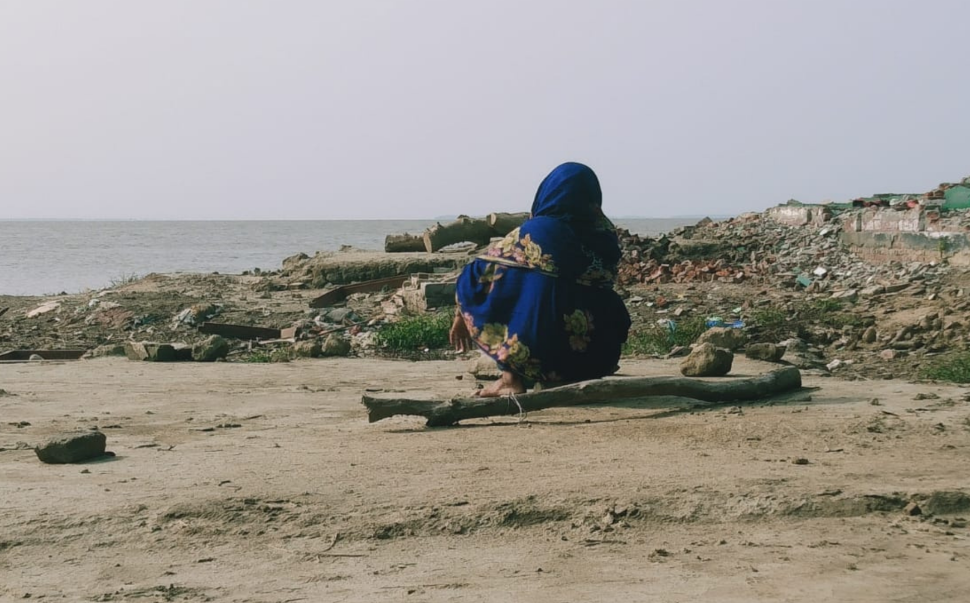DHAKA: The last time rising water levels forced Pervin Bibi to leave her home was three years ago.
Now she knows it will happen again soon, as the coastal Bangladeshi island where she lives is disappearing from the map at increasing speed.
Located in the estuary of the Meghna River, just a few kilometers from the Bay of Bengal, the island of Dhal Char is shrinking due to river erosion, which has been accelerated by climate change.
“You will hardly find anyone on this island who has not relocated houses at least a couple of times,” Bibi, 45, told Arab News. “I had to shift my houses four times in the last 30 years due to river erosion.” She is not the only one.
Most of the island’s 10,000 inhabitants have suffered forced displacement when water swept their homes away. Bibi said: “How can we bear the cost of rebuilding the house again and again?”
She now lives with her husband and three children on her father’s land located further away from the river. But another relocation is looming. “Now, it’s also on the verge of disappearance,” she said. “Probably within the next six months I will have to relocate to a new place.”
The water has deprived Dhal Char residents not only of their homes, but also their sources of livelihood.
Another islander, Mohammad Shahjahan, 47, said that he used to have agricultural land on the island, but now, like many others, he is a landless fisherman.
“We used to cultivate paddies on our own lands and there was no question of buying rice from the market,” he said. “Most of the people in Dhal Char live on fishing. Many areas of the island went underwater in the last two decades, so people don’t have enough land to cultivate anymore.”
He estimates that about 800 families have left the island in the last 20 years to find means of sustenance elsewhere.
Mohammad Azhar Uddin, 62, a retired headmaster of one of the island’s four schools, is among the few lucky residents, as river erosion has not yet touched his home.
But he knows his luck will soon run out. “I was lucky for the last four and half decades,” he said. “I think next year, I will also have to relocate my house due to the erosion.” Before the island started to shrink, it covered more than 10 square kilometers.
Now, it measures about three square kilometers or less, Al Noman, head of the Char Fasson subdistrict to which the island belongs, told Arab News.
“For the last two years, we have been trying to protect the island from disappearance by using sandbags in the affected areas. But it seemed inadequate against the mighty river,” he said.
“We have to protect this land anyhow as Bangladesh is a small country and we don’t have enough land. We can’t just let it disappear without any effort.”
But according to one of Bangladesh’s most renowned climate scientists, Prof. Atiq Rahman, sooner or later the island will be totally submerged, as although a natural phenomenon, river erosion in Bangladesh is now happening at a faster rate due to the changing climate.
“Climate change impacts accelerated the erosion in the case of Dhal Char island,” he said. “It may disappear from the map in the next five decades.”




